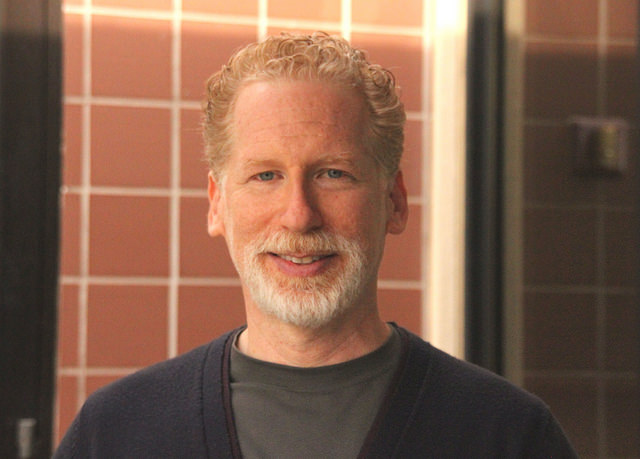Accepting differences leads to healthy relationships says expert
Aaron Feldman, Licensed Marriage and Family Therapist
February 22, 2016
There is an art and a balance that comes with being in a relationship and few people understand that.
Aaron J. Feldman, a licensed family and marriage counselor, hosted a Brown Bag Workshop in the Diablo Valley College Student Union, Feb. 11. Feldman spoke to students on how to keep relationships on desirable ground.
Lots of relationships have differences, conflicts, and disagreements. Feldman highlighted the importance of establishing a safe and respectable love in your relationship.
“Be gracious, easy to talk to, and make sure to make room for differences. By accepting difference, you will grow and evolve with your partner or companion,” said Feldman.
People usually state questions that start with “why.” Doing this can corner your partner, making them defensive. Feldman highlighted the importance of owning what you are trying to say by transforming your would-be-question into an “I-statement.”
“With I-statements, you need to identify what the problem is. Take time to figure out what vulnerable feeling the problem is and come up with a solution,” said Feldman.
Threats can lead to abuse and exploitation for your partner’s open wounds. It’s always okay to leave a relationship if you want to, just don’t use threats as a way to manipulate.
If you want something and it’s not working, Feldman suggests using active listening. If that’s not working, take a time-out and try again later, or get help. Either person can call a time out, but it’s smart to not overuse it or use it to shut down communication.
A situation can be made worse by pursuing a person and conversation when they are not ready to be resolved. Keep in mind where each other will go, what each person will do, and for how long. The issue will be addressed in a timely manner once both people are calm enough to do so safely.
“When it comes to active listening, there are five steps to follow and understand. First, you repeat back what you heard the person say. Secondly, ask if you heard them completely,” said Feldman, “Third, take seriously to what has been said and acknowledge or validate their feelings. The last step is to agree or switch roles to work towards an alignment or, at worst, a compromise.”
Arguments can lead to yelling. It’s common. And it’s possible that you both might be doing it, but it’s often abusive and aggressive. This behavior can be damaging for children and often traumatize them. Talking about issues is more important than the issue itself.
“Learning from your history is one thing, but using it against someone so they are trapped is another. Take the past into account and form a constructive and realistic solution for your problems,” said Feldman.
If you wonder why your relationship doesn’t feel like it did in the beginning, check yourself for whether or not you are behaving in the way you initially did. Feldman highly recommends that if you can’t get there on your own, seek professional counseling to get through it.
“Know how you are vulnerable in your relationships and work on yourself to get through this. Learn to be assertive and build your self-esteem,” said Feldman.
“As a therapist and relationship coach, I don’t just sit there and listen, and I’m also not here to judge. I want people to be safe and always have a confidential place to go to,” said Feldman. “Professional counselors are here to provide help and want you to fulfill your personal and relationship potential.”
Feldman reminds people to use caution when it comes to seeing “red flags,” which might show up from either party, or in the relationship over time. People often deny or justify abuse, which can result in serious problems. Negative behavior will rarely change without professional help.






































































